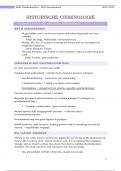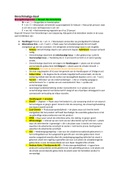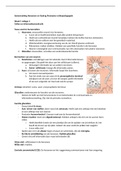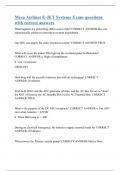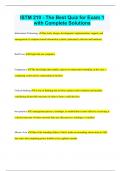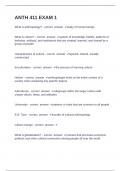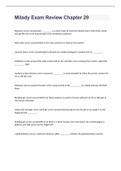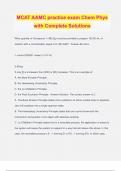Summary
Historische Criminologie - Samenvatting (volledig) met examenvragen
- Course
- Institution
Dit is een volledige samenvatting van het vak 'historische criminologie'. Ik was aanwezig in alle hoorcolleges en erdoor in eerste zit. De samenvatting is een combinatie van de slides, cursus en eigen notities.
[Show more]
